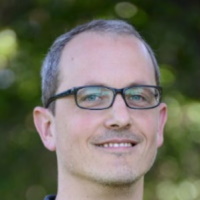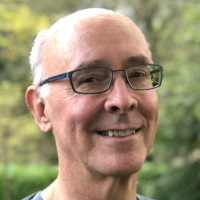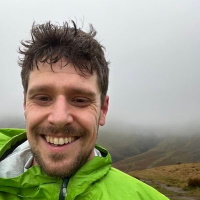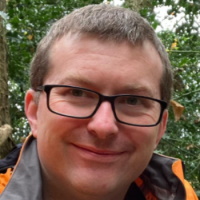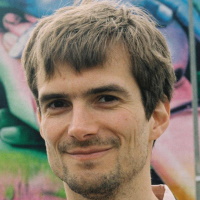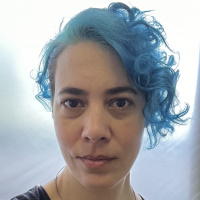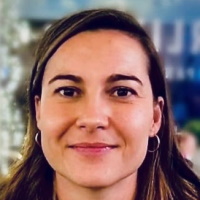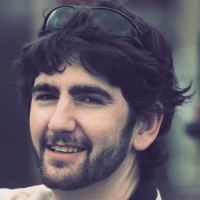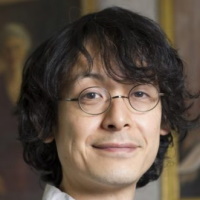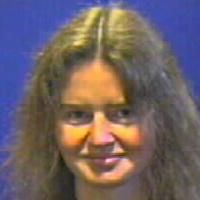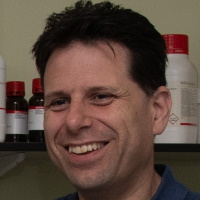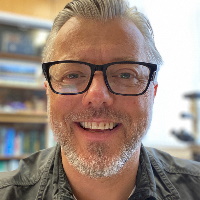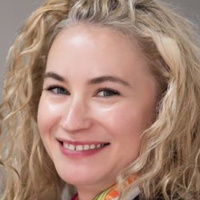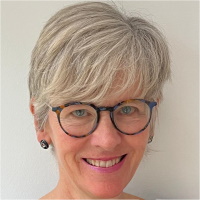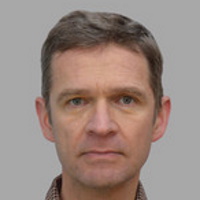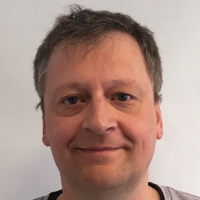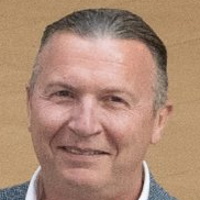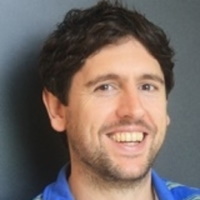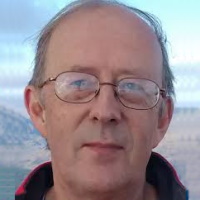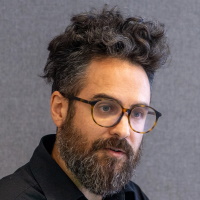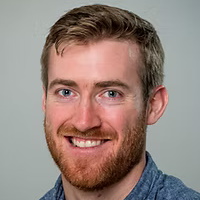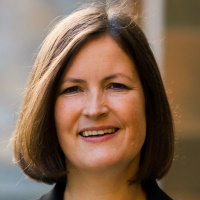Dale Barr
I am Dale Barr, a Senior Lecturer here at the School of Psychology and Neuroscience. My main areas of interest are psycholinguistics, statistical modelling, and cognitive science. Most of my work consists of empirical investigations into the cognitive representations and processes underlying spoken dialogue. I have published work on topics including pragmatics, perspective-taking, lexical processing, cultural evolution, speech rhythm, disfluency, and multimodal signaling. My recent work investigates how language users integrate linguistic and situational information (such as interlocutors' beliefs and goals) within the constraints of real-time dialogue. My research uses a variety of methodologies from visual-world eyetracking, EEG, and MEG to computational modeling and Monte Carlo simulation. I have also contributed to statistical methodology, developing techniques for time-series analysis of visual-world eyetracking data, as well as for linear mixed-effects modeling. I am a founding member of the PsyTeachR teaching team at the University of Glasgow (psyteachr.github.io), which developed an award-winning curriculum promoting reproducible data analysis.
Biography
I received a PhD in Psychology from the University of Chicago (USA) in 1999.
Biography
I received a PhD in Psychology from the University of Chicago (USA) in 1999.
Lawrence Barsalou
I am a Professor of Cognitive Science here in the School of Psychlogy & Neuroscience. My research addresses the nature of human conceptual processing and its roles in perception, memory, language, thought, social interaction, and health cognition. A current theme of this research is that the conceptual system is grounded in multimodal simulation, situated conceptualization, and embodiment. Specific topics of current interest include the roles of conceptual processing in emotion, stress, abstract thought, self, appetitive behavior, and contemplative practices. My research also addresses the dynamic online construction of conceptual representations, the development of conceptual systems to support goal achievement, and the structure of knowledge. For further information and lab publications, please visit our lab.
Biography
I received a Bachelors degree in Psychology from the University of California, San Diego in 1977, and a Ph.D. in Psychology from Stanford University in 1981. Before coming to the University of Glasgow, I held faculty positions at Emory University, the Georgia Institute of Technology, and the University of Chicago.
Biography
I received a Bachelors degree in Psychology from the University of California, San Diego in 1977, and a Ph.D. in Psychology from Stanford University in 1981. Before coming to the University of Glasgow, I held faculty positions at Emory University, the Georgia Institute of Technology, and the University of Chicago.
Andrew Bell
My name is Andy Bell: I am a specialist veterinary anaesthetist and pain researcher and current Wellcome Clinical Research Fellow. My clinical interests centre around the measurement and treatment of pain in veterinary species. I also conduct discovery neuroscience research into spinal cord pain mechanisms. I am particulary interested in unravelling the heterogeneity amongst the neurons that make up pain and itch circuits in the dorsal horn of the spinal cord. I use a variety of molecular, anatomical and behavioral techniques to investigate what defines neuronal identity and how this contributes to abnormal sensory function in pain states.
Mick Craig
My name is Mick craig: I am a Senior Lecturer in the School of Psychology & Neuroscience, interested in how interneurons can control synchronous neuronal network activity, and how different brain regions coordinate their activity across long distances. While comprising only a small percentage of cortical neurons, inhibitory interneurons play a fundamental role in coordinating and pacing the rhythm of neuronal oscillations. My previous work has included studying slow oscillations in sensory and entorhinal cortices, and faster rhythms (gamma oscillations and sharp-wave ripples) in the hippocampus.
The research in my group uses a combination of virus-assisted circuit mapping, patch-clamp and in vivo electrophysiological recordings, combined with optogenetics / chemogenetics and behaviour, to understand the cellular circuitry through which different brain regions communicate across long distances. We focus principally in Papez circuit, with a particular interest in how the anterior thalamic nuclei and thalamic nucleus reuniens can mediate communciation through this 'extended memory circuit'. We are also interested in studying how these long-range projections are disrupted in mouse models of psychiatric and neurodegenerative disorders.
Biography
I completed my undergraduate degree in Neuroscience at the University of Glasgow in 2006. This degree included a year in the pharmaceutical industry, where I carried out schizophrenia research at Merck, Sharp and Dohme in Harlow, Essex. I then moved to the University of Oxford to study on a four year Wellcome Trust DPhil in the OXION programme, working with Prof Ole Paulsen and Dr Louise Upton, graduating in 2011.
In the final year of my doctoral studies, Prof Paulsen moved to the University of Cambridge to take up the Chair of Physiology, so after completing my DPhil, I spent a few months in Cambridge before moving to the National Institutes of Health (Bethesda, USA) in 2011, to work as a Postdoctoral Visiting Fellow in the group of Dr Chris McBain.
I moved back to the UK in early 2016 to establish my research group at the University of Exeter on an early career fellowship funded by the Vandervell Foundation, before taking up a Senior Lecturer position here in Glasgow in 2020.
The research in my group uses a combination of virus-assisted circuit mapping, patch-clamp and in vivo electrophysiological recordings, combined with optogenetics / chemogenetics and behaviour, to understand the cellular circuitry through which different brain regions communicate across long distances. We focus principally in Papez circuit, with a particular interest in how the anterior thalamic nuclei and thalamic nucleus reuniens can mediate communciation through this 'extended memory circuit'. We are also interested in studying how these long-range projections are disrupted in mouse models of psychiatric and neurodegenerative disorders.
Biography
I completed my undergraduate degree in Neuroscience at the University of Glasgow in 2006. This degree included a year in the pharmaceutical industry, where I carried out schizophrenia research at Merck, Sharp and Dohme in Harlow, Essex. I then moved to the University of Oxford to study on a four year Wellcome Trust DPhil in the OXION programme, working with Prof Ole Paulsen and Dr Louise Upton, graduating in 2011.
In the final year of my doctoral studies, Prof Paulsen moved to the University of Cambridge to take up the Chair of Physiology, so after completing my DPhil, I spent a few months in Cambridge before moving to the National Institutes of Health (Bethesda, USA) in 2011, to work as a Postdoctoral Visiting Fellow in the group of Dr Chris McBain.
I moved back to the UK in early 2016 to establish my research group at the University of Exeter on an early career fellowship funded by the Vandervell Foundation, before taking up a Senior Lecturer position here in Glasgow in 2020.
Christoph Daube
My name is Christoph Daube: I am a newly apponited lecturer here in the School of Psychology & Neuroscience. I am interested in the auditory processing of speech as well as the visual processing of faces. What happens to the soundwaves once they have hit our eardrums, or the light once it has excited the rods and cones of our retina? How do we arrive at an abstract understanding of the stimuli presented to us? And what can neuronal or behavioural responses tell us about these latent processes? I try to gain insights into these questions through the perspectives offered by deep neural networks, magnetoencephalography and information theory.
Lisa DeBruine
My name is Lisa DeBruine: I am Professor in Psychology in the School of Psychology & Neuroscience here at the University of Glasgow, leading the FaceLab (see link above). My research interests include the links between human facial resemblance and kinship, the behavioural immune system and how pathogens influence mating and social behaviours, and meta-science. I am also interested in tools for open science, team science (particularly the Psychological Science Accelerator), data simulation, workshops on computational skills including R, Tidyverse, GitHub and making websites.
Ana González-Rueda
My name is Ana González-Rueda: I am a newly appointed lecturer here in the School of Psychology & Neuroscience. I am an experimental neuroscientist interested in how neuronal connectivity forms and is shaped to endow neuronal networks with their unique computational abilities. My research focuses on the dynamics of how sensory information is perceived and then transformed into motor outputs and on studying neuronal circuits' ability to adapt in order to support diverse and sometimes opposing behaviours.
Biography
I obtained my BSc in Human Biology and an MRes in Biomedical Research from Universitat Pompeu Fabra, Barcelona, sparking my interest in synaptic plasticity's role in shaping neuronal connections. This led me to the University of Cambridge and Professor Ole Paulsen's lab, where my MRes project and subsequent PhD research, funded by a Michael Foster Scholarship in Physiology, focused on how neuronal connections can be dynamically modified through synaptic plasticity, particularly during sleep. My doctoral research revealed that sleep enhances the efficiency of information storage in the brain by selectively preserving strong neuronal connections associated with specific concepts or memories while eliminating weaker ones.
Post-PhD, I joined Marco Tripodi's lab at the MRC Laboratory of Molecular Biology first as an MRC postdoctoral Career Development Fellow and then as a Henslow Research Fellow. There, I studied how the brain interprets and transforms sensory information into motor actions I discovered that our brain acts like a motion sensor by prioritising the movement of sensory targets to drive behaviour—an insight that challenges traditional views of sensorimotor transformations.
Research Interests
At the University of Glasgow, my lab will examine the intersection of circuit plasticity and sensorimotor encoding, employing electrophysiology, viral and genetic tools, and behavioural tasks. We aim to understand how neuronal sensorimotor circuits support diverse behaviours and adapt to new or changing behavioural demands. This research will advance our understanding of neural plasticity and circuit functionality, with potential applications in treating neurological disorders.
Biography
I obtained my BSc in Human Biology and an MRes in Biomedical Research from Universitat Pompeu Fabra, Barcelona, sparking my interest in synaptic plasticity's role in shaping neuronal connections. This led me to the University of Cambridge and Professor Ole Paulsen's lab, where my MRes project and subsequent PhD research, funded by a Michael Foster Scholarship in Physiology, focused on how neuronal connections can be dynamically modified through synaptic plasticity, particularly during sleep. My doctoral research revealed that sleep enhances the efficiency of information storage in the brain by selectively preserving strong neuronal connections associated with specific concepts or memories while eliminating weaker ones.
Post-PhD, I joined Marco Tripodi's lab at the MRC Laboratory of Molecular Biology first as an MRC postdoctoral Career Development Fellow and then as a Henslow Research Fellow. There, I studied how the brain interprets and transforms sensory information into motor actions I discovered that our brain acts like a motion sensor by prioritising the movement of sensory targets to drive behaviour—an insight that challenges traditional views of sensorimotor transformations.
Research Interests
At the University of Glasgow, my lab will examine the intersection of circuit plasticity and sensorimotor encoding, employing electrophysiology, viral and genetic tools, and behavioural tasks. We aim to understand how neuronal sensorimotor circuits support diverse behaviours and adapt to new or changing behavioural demands. This research will advance our understanding of neural plasticity and circuit functionality, with potential applications in treating neurological disorders.
Roddy Grieves
My name is Roddy Grieves: I am a behavioural neuroscientist, and newly appointed lecturer in the School of Psychology & Neuronce. My research looks to understand how spatial neurons in the brain map the animal's surroundings, aid memory and contribute to learning and decision making, with a special focus on naturalistic behaviours and environments. This work involves recording the activity of single neurons in the brain of freely moving animals, especially rats.
Biography
I received a PhD in Psychology from the University of Stirling, under the supervision of Prof Paul Dudchenko and mentorship of Prof Emma Wood. As a postdoc I worked with Prof Kate Jeffery at UCL, then with Prof Jeffrey Taube at Dartmouth College. I am now a Lecturer in the School of Psychology and Neuroscience at the University of Glasgow.
Biography
I received a PhD in Psychology from the University of Stirling, under the supervision of Prof Paul Dudchenko and mentorship of Prof Emma Wood. As a postdoc I worked with Prof Kate Jeffery at UCL, then with Prof Jeffrey Taube at Dartmouth College. I am now a Lecturer in the School of Psychology and Neuroscience at the University of Glasgow.
Shajan Gunamony
I am Shajan Gunamony, Head of MRI RF Engineering and I am based in the Imaging Centre of Excellence at Queen Elizabeth University Hospital. I specialise in the design and development of radiofrequency (RF) coils for ultra-high field (UHF) MRI.
I started my career at the Indian Space Research Organisation, Bangalore, India in 1998. Before I moved to Glasgow in 2016, I worked at the Max Planck Institute in Tübingen from 2007, where I developed RF coils for the 9.4T human MRI scanner which was the world’s strongest human MRI scanner at that time. I was introduced to RF coil design for MRI at GE Medical Systems, Bangalore, where I worked from 2001 to 2007.
My projects in Glasgow includes the Living Laboratory Program, collaboration with Neurospin, France to develop RF coils for the world’s strongest 11.7T human MRI scanner and leading the RF coil development efforts for the UK National Facility for UHF MRI at the University of Nottingham. I set up MR CoilTech to develop specialised coils for the UHF MRI community, and I closely collaborate with industry partners Siemens Healthineers, Germany and Skope AG, Switzerland for the commercialisation of my academic research.
Biography
I hold a PhD in Medical Physics from Eberhard Karls University of Tübingen, Germany and Master of Engineering degree in Communication Systems from Madurai Kamaraj University, India.
I started my career at the Indian Space Research Organisation, Bangalore, India in 1998. Before I moved to Glasgow in 2016, I worked at the Max Planck Institute in Tübingen from 2007, where I developed RF coils for the 9.4T human MRI scanner which was the world’s strongest human MRI scanner at that time. I was introduced to RF coil design for MRI at GE Medical Systems, Bangalore, where I worked from 2001 to 2007.
My projects in Glasgow includes the Living Laboratory Program, collaboration with Neurospin, France to develop RF coils for the world’s strongest 11.7T human MRI scanner and leading the RF coil development efforts for the UK National Facility for UHF MRI at the University of Nottingham. I set up MR CoilTech to develop specialised coils for the UHF MRI community, and I closely collaborate with industry partners Siemens Healthineers, Germany and Skope AG, Switzerland for the commercialisation of my academic research.
Biography
I hold a PhD in Medical Physics from Eberhard Karls University of Tübingen, Germany and Master of Engineering degree in Communication Systems from Madurai Kamaraj University, India.
Junichi Hachisuka
My name is Junichi Hachisuka and I am a Senior Lecturer here in the School of Psychology & Neuroscience. My lab works on the spinal cord mechanisms of pain and itch, using mouse models.
Biography
I graduated in medicine from the Nagoya University School of Medicine in 2002. After 3 years of clinical training in dermatology, I entered graduate school at Kyushu University, studying theitch mechanism of primary afferents. Then I returned to clinical practice of dermatology, especially skin cancer treatment and surgery. From 2012 I returned to research and worked as a post doc at University of Pittsburgh with Sarah Ross studying itch mechanisms in the spinal cord. There, I developed a new preparation that allows recording the spinal sensory neuron's activity in response to natural stimulation to the skin. In 2019 I took up my position here at Glasgow.
Biography
I graduated in medicine from the Nagoya University School of Medicine in 2002. After 3 years of clinical training in dermatology, I entered graduate school at Kyushu University, studying theitch mechanism of primary afferents. Then I returned to clinical practice of dermatology, especially skin cancer treatment and surgery. From 2012 I returned to research and worked as a post doc at University of Pittsburgh with Sarah Ross studying itch mechanisms in the spinal cord. There, I developed a new preparation that allows recording the spinal sensory neuron's activity in response to natural stimulation to the skin. In 2019 I took up my position here at Glasgow.
Simon Hanslmayr
I am Simon Hanslmayr, a Professor here in the School of Psychology & Neuroscience. My research focuses on how thoughts, feelings, or a face we attend to are produced by orchestrated neural firing patterns in distributed brain networks. Precise timing of this neural activity is required in order to represent information in brain networks, and to form lasting memories. Neural oscillations establish such precise timing, which is why I chose to investigate oscillations to understand how the brain implements cognition. To this end my research primarily focuses on attention and memory processes in healthy populations, but I am also interested in how these processes are affected in clinical populations, like patients suffering from Schizophrenia or Post-Traumatic-Stress-Disorder (PTSD). In order to study neural oscillations in humans my lab uses a broad array of electrophysiological and imaging methods from the global scale, such as EEG/MEG, fMRI, combined EEG-fMRI, to the local scale such as intracranial EEG and single unit recordings in humans. Going beyond correlating oscillations with cognition, we also study the causal role of oscillations by externally perturbing the brain via rhythmic sensory stimulation (i.e. flickering or amplitude modulated sounds), rhythmic transcranial magnetic stimulation (rTMS) and transcranial electrical stimulation (TES) and investigate the impact of such oscillatory perturbations on cognition. Finally, we integrate the findings of both data streams (i.e. correlative and causal) via computational models. These models make specific predictions which we test in correlational and causal experiments. My aim with this multidisciplinary, multimodal and multiscale approach is to draw a detailed picture of how the human brain perceives, stores and retrieves information.
Monika Harvey
I am Monika Harvey, Professor of Neuropsychology and Cognitive Neuroscience here in the School of Psychology & Neuroscience. My research interests fall in the area of cognitive neuroscience, with an emphasis on visual perception and the contribution of the two main cortical visual streams (dorsal and ventral) towards perception and action. My particular interests are in the syndrome of hemispatial neglect and investigating healthy cognitive ageing in relation to attention related changes (using EEG, non-invasive brain stimulation and virtual reality techniques). I am also working on using AI to predict brain age and cognitive impairment.
I lead on: Social AI CDT (UKRI Centre for Doctoral Training in Socially Intelligent Artificial Agents
and am College theme lead for: MVLS2033 - College Futures - Fundamentals of Life
Biography
I obtained a degree in Psychology from the University of Bielefeld (Germany), followed by a PhD in Neuropsychology from St. Andrews University (UK). I was then appointed by the University of Bristol (UK) to Lecturer and Senior Lecturer, and the University of Glasgow (UK) to Reader and Professor.
I lead on: Social AI CDT (UKRI Centre for Doctoral Training in Socially Intelligent Artificial Agents
and am College theme lead for: MVLS2033 - College Futures - Fundamentals of Life
Biography
I obtained a degree in Psychology from the University of Bielefeld (Germany), followed by a PhD in Neuropsychology from St. Andrews University (UK). I was then appointed by the University of Bristol (UK) to Lecturer and Senior Lecturer, and the University of Glasgow (UK) to Reader and Professor.
William Holmes
My name is William Holmes: I am Senior Research Fellow in the School of Psychology & Neuroscience. My group reseraches novel magnetic resonance imaging (MRI) methods for biomedical research.
MRI is a powerful and flexible technology that has revolutionised diagnostic medicine, allowing detailed assessment of pathology and function. My research group aims to push the boundaries of MRI physics by pioneering novel methods for the in-vivo imaging of animal disease models, to further understand the mechanisms of disease and develop therapeutic strategies. My current research interests include cardiovascular flow, glymphatic transport, stroke and vascular dementia.
Biography
2005 - Deputy-Director, Glasgow Experimental MRI Centre.
2003 - 2005 Industrial Post-Doctorate, EXXONMOBIL Corporate Research and Engineering, USA. Development of MRI for investigating heavy oil recovery mechanisms.
2001 - 2003 Research Fellow, Victoria University, New Zealand. Supervisor Prof. Paul Callaghan. Development of MRI methods for Rheological studies.
1997-2001 PhD in Physical Chemistry. University of Nottingham. Supervisor Prof. Ken Packer. Thesis title “MRI investigation of multi-phase transport through porous media”.
1994-1997 BSc (1st) Chemistry and Molecular Physics. University of Nottingham.
MRI is a powerful and flexible technology that has revolutionised diagnostic medicine, allowing detailed assessment of pathology and function. My research group aims to push the boundaries of MRI physics by pioneering novel methods for the in-vivo imaging of animal disease models, to further understand the mechanisms of disease and develop therapeutic strategies. My current research interests include cardiovascular flow, glymphatic transport, stroke and vascular dementia.
Biography
2005 - Deputy-Director, Glasgow Experimental MRI Centre.
2003 - 2005 Industrial Post-Doctorate, EXXONMOBIL Corporate Research and Engineering, USA. Development of MRI for investigating heavy oil recovery mechanisms.
2001 - 2003 Research Fellow, Victoria University, New Zealand. Supervisor Prof. Paul Callaghan. Development of MRI methods for Rheological studies.
1997-2001 PhD in Physical Chemistry. University of Nottingham. Supervisor Prof. Ken Packer. Thesis title “MRI investigation of multi-phase transport through porous media”.
1994-1997 BSc (1st) Chemistry and Molecular Physics. University of Nottingham.
David Hughes
I am David Hughes, Professor of Neuroanatomy here in the School of Psychology & Neuroscience. My research aims to improve our understanding of the complex neurocircuitry in the spinal dorsal horn, an area of critical importance in our ability to perceive the sensations of touch, pain, and itch. In my group, we use a combination of anatomical and electrophysiological approaches in both human and rodent tissue to identify individual cell populations and determine how their activity influences our ability to perceive different sensations.
The main focus of my work has been in collaboration with Brett Graham (University of Newcastle, Australia). We have identified populations of spinal neurons that influence how we perceive the sensations of touch and pain, and established that these cells also play key roles in the development of pathological pain states (tactile allodynia and mechanical hyperalgesia). These circuit mapping studies help us gain insights into how our nervous system processes sensory information and are aimed at identifying novel therapeutic targets for the development more effective treatments to manage chronic pain states.
The main focus of my work has been in collaboration with Brett Graham (University of Newcastle, Australia). We have identified populations of spinal neurons that influence how we perceive the sensations of touch and pain, and established that these cells also play key roles in the development of pathological pain states (tactile allodynia and mechanical hyperalgesia). These circuit mapping studies help us gain insights into how our nervous system processes sensory information and are aimed at identifying novel therapeutic targets for the development more effective treatments to manage chronic pain states.
Rachael Jack
I am Rachael Jack, Professor of Computational Social Cognition here in the School of Psychology & Neuroscience. I research the facial expression of emotion within and across cultures using an interdisciplinary approach that combines psychophysics, social psychology, dynamic 3D computer graphics, and communication/information theory. Most notably, my work has revealed cultural specificities in facial expressions of emotion; that four, not six, expressive patterns are common across cultures; and that facial expressions transmit information in a hierarchical structure over time. Together, this work challenges the dominant view that six basic facial expressions of emotion are universal, which has led to a new theoretical framework of facial expression communication that I am now transferring to digital agents, to synthesize culturally sensitive social avatars and robots.
Kate Jeffery
My name is Kate Jeffery: I am a Professor of Behavioural Neuroscience here at the School of Psychology & Neuroscience, and currently Head of School. My research works on how sensory information is assembled by the brain into more complex, cognitive representations of the world. It focuses on the “cognitive map,” which is formed by the hippocampus and associated structures and underlies our sense of direction and sense of place. I am also interested in the link between architecture and the representation of space in the brain. For more about my research and other activities please visit my lab webpage.
Biography
I am a medically qualified neuroscientist from New Zealand. I moved to the UK in 1990 to undertake PhD studies with Richard Morris (Edinburgh) before moving to London in 1993 to take up a postdoctoral position with John O'Keefe at University College London. I then set up my own research group in the Division of Psychology & Languages at UCL, as well as a research cluster known as the Instiitute of Behavioural Neuroscience,and eventually became Vice Dean (Research) in the Faculty of Brain Sciences. I moved to Glasgow in 2022 to become Head of School for Psychology & Neuroscience.
Biography
I am a medically qualified neuroscientist from New Zealand. I moved to the UK in 1990 to undertake PhD studies with Richard Morris (Edinburgh) before moving to London in 1993 to take up a postdoctoral position with John O'Keefe at University College London. I then set up my own research group in the Division of Psychology & Languages at UCL, as well as a research cluster known as the Instiitute of Behavioural Neuroscience,and eventually became Vice Dean (Research) in the Faculty of Brain Sciences. I moved to Glasgow in 2022 to become Head of School for Psychology & Neuroscience.
Michael Kohl
My name is Michael Kohl: I am a Senior Lecturer in the School of Psychology & Neuroscience. My research focuses on how neural activity in primary sensory cortices integrates with activity in a higher order cortex, such as the retrosplenial cortex. We combine theoretical studies to make quantitative predictions about population codes and their information content to help us guide experiments. We also continue to develop novel experimental tools and analysis approaches.
Our ongoing research is broadly focused on three projects:
Biography
I received a B.Sc in Neuroscience (2005) from University College London, and, as part of the Wellcome Trust Oxford Ion Channel Initiative, a D.Phil in Physiology (2009) from the University of Oxford. I carried out my postdoctoral studies at the University of Cambridge and Stanford University (2010-2011) and the University of California, Berkeley (2012-2013). I became an Early Career Research Fellow at the Department of Physiology, Anatomy and Genetics in 2013 and University Research Lecturer in 2018. I took up a Senior Lectureship in Neuroscience at the University of Glasgow in 2018.
Our ongoing research is broadly focused on three projects:
- Role of interneurons in somatosensory perception: We study how different types of inhibitory interneurons are optimised for controlling neural codes.
- Role of hippocampus and retrosplenial cortex in associative memory: We study the interplay of hippocampus and sensory cortices with the retrosplenial cortex during the formation and retrieval of associative memories.
- Tool development: We develop novel approaches for recording and manipulating the function of large populations of neurons.
Biography
I received a B.Sc in Neuroscience (2005) from University College London, and, as part of the Wellcome Trust Oxford Ion Channel Initiative, a D.Phil in Physiology (2009) from the University of Oxford. I carried out my postdoctoral studies at the University of Cambridge and Stanford University (2010-2011) and the University of California, Berkeley (2012-2013). I became an Early Career Research Fellow at the Department of Physiology, Anatomy and Genetics in 2013 and University Research Lecturer in 2018. I took up a Senior Lectureship in Neuroscience at the University of Glasgow in 2018.
Martin Lages
I am a Senior Lecturer here in the School of Psychology and Neuroscience. My research interests range from quantitative methods (hierarchical models, Bayesian inference), visual perception (motion, stereo, visual memory, visual awareness, illusions) to human decision making (sequential effects, cognitive bias, rationality, free will).
Biography
I completed my PhD studies at Oxford University and Heidelberg University. I am a regular member of the Vision Sciences Society, Applied Vision Association, Scottish Vision Group and the Society for Mathematical Psychology.
Biography
I completed my PhD studies at Oxford University and Heidelberg University. I am a regular member of the Vision Sciences Society, Applied Vision Association, Scottish Vision Group and the Society for Mathematical Psychology.
Brian Morris
I am Brian Morris, Professor of Molecular Neurobiology here in the School of Psychology & Neuroscience. My research focuses on the neurobiological basis of schizophrenia: characterisation of neurobiological dysfunction, identification of genomic abnormalities, and identification of novel drug candidates. I also investigate neuronal plasticity and the role of protein signalling complexes, mRNA translation, (including dendritic mRNA), and gene transcription (including transcription factors) in sustaining late phase of long-term potentiation.
Lars Muckli
I am Lars Muckli, Professor of Visual and Cognitive Neurosciences here in the School of Psychology & Neuroscience. My work focuses on brain imaging of cortical feedback, investigation of layer specific fMRI, and multi-level cross-species computational neuroscience. In particular, my lab has generated supporting evidence for predictive coding theories. For more about my research please visit my lab webpage.
Biography
I studied Cognitive Psychology (in Gießen, Germany 1992-7, and UCL, London 1995), with minors in Mathematics, Medicine and Philosophy, before I moved to work at the Max-Planck Institute for Brain Research in Frankfurt (PhD in 2002). In 2004 I contributed to the foundation of the Frankfurt Brain Imaging Centre (F-BIC). In 2007, I moved to Glasgow and contributed to the opening of the Centre for Cognitive Neuroimaging (CCNI) in 2008 and the Imaging Centre of Excellence (ICE) in 2017.
Biography
I studied Cognitive Psychology (in Gießen, Germany 1992-7, and UCL, London 1995), with minors in Mathematics, Medicine and Philosophy, before I moved to work at the Max-Planck Institute for Brain Research in Frankfurt (PhD in 2002). In 2004 I contributed to the foundation of the Frankfurt Brain Imaging Centre (F-BIC). In 2007, I moved to Glasgow and contributed to the opening of the Centre for Cognitive Neuroimaging (CCNI) in 2008 and the Imaging Centre of Excellence (ICE) in 2017.
Marios Philiastides
I am Marios Philiastides, Professor of Decision Neuroscience here in the School of Psychology &Neuroscience. Our group is interested in characterising the neural principles guiding perceptual and value-based decisions in humans, including reinforcement-guided learning and reward-related activity in cortical and subcortical systems. The computational techniques used in our lab are motivated by classical problems in signal processing, machine learning and statistical pattern recognition. Our ultimate goal is to go beyond mere "brain mapping" and begin looking for distributed neural representations to decipher how information flow through a "network" can lead to changes in behaviour. To this end we use a multimodal approach, which combines various forms of neuroimaging (EEG/MEG, fMRI, simultaneous EEG-fMRI [in 3T and 7T systems], combined EEG-pupillometry) as well as interventional techniques (TMS/tDCS) along with computational modelling and multivariate single-trial data analysis techniques to expose the relevant brain networks and their underlying computations. We perform these measurements in control and clinical groups to understand healthy and maladaptive decision making and develop neural markers for predicting treatment response in psychiatry. For more info see my lab webpage.
Frank Pollick
I am Frank Pollick, a Professor in the school of Psychology & Neuroscience interested in the perception of human movement and the cognitive and neural processes that underlie our abilities to understand the actions of others. In particular, recent research emphasises brain imaging and how individual differences involving autism, depression and skill expertise are expressed in the brain circuits for action understanding. Research applcations include virtual reality and cyber sickness as well as trust in human-AI interactions.
Biography
I obtained BS degrees in physics and biology from MIT in 1982, an MSc in Biomedical Engineering from Case Western Reserve University in 1984 and a PhD in Cognitive Sciences from The University of California, Irvine in 1991. Following this I was an invited researcher at the ATR Human Information Processing Research Labs in Kyoto, Japan from 1991-97.
Biography
I obtained BS degrees in physics and biology from MIT in 1982, an MSc in Biomedical Engineering from Case Western Reserve University in 1984 and a PhD in Cognitive Sciences from The University of California, Irvine in 1991. Following this I was an invited researcher at the ATR Human Information Processing Research Labs in Kyoto, Japan from 1991-97.
David Porter
I am David Porter, Professor in Magnetic Resonance Imaging Physics in the School of Psychology & Neuroscience. I came to the University of Glasgow in 2017 to work on the 7T MRI scanner in the Imaging Centre of Excellence (ICE) on the Queen Elizabeth University Hospital campus. This system was one of the first of its kind to be installed in a clinical environment. In this role, my current interests involve the optimisation of MRI methods that aim to exploit the potential of this new generation of MRI scanner to provide enhanced image quality in clinical and neuroscience applications.
Biography
Originally from London, I trained as a physicist, specialising in magnetic resonance imaging. I hold a B.Sc. degree in physics from Sheffield University and a Ph.D. from King’s College London for work on magnetic resonance spectroscopy of human tumours in vivo. I worked as a postdoctoral scientist at Great Ormond Street Hospital in London, developing MRI methods for the study of epilepsy and acute stroke in children. Subsequently, I had a long career in industry working for Siemens Healthcare in the UK and Germany, where I supported research collaborations with universities around the world and developed novel techniques for Siemens MRI scanners. During my time at Siemens I focused on neurology topics: in particular, diffusion weighted imaging (DWI). I have also worked at the Fraunhofer MEVIS Institute for Medical Image Computing in Bremen, where I led an MRI project that focused on motion correction, fast imaging and programming tools for the design of MRI sequences. I joined the University of Glasgow in 2017.
Biography
Originally from London, I trained as a physicist, specialising in magnetic resonance imaging. I hold a B.Sc. degree in physics from Sheffield University and a Ph.D. from King’s College London for work on magnetic resonance spectroscopy of human tumours in vivo. I worked as a postdoctoral scientist at Great Ormond Street Hospital in London, developing MRI methods for the study of epilepsy and acute stroke in children. Subsequently, I had a long career in industry working for Siemens Healthcare in the UK and Germany, where I supported research collaborations with universities around the world and developed novel techniques for Siemens MRI scanners. During my time at Siemens I focused on neurology topics: in particular, diffusion weighted imaging (DWI). I have also worked at the Fraunhofer MEVIS Institute for Medical Image Computing in Bremen, where I led an MRI project that focused on motion correction, fast imaging and programming tools for the design of MRI sequences. I joined the University of Glasgow in 2017.
Edwin Robertson
I am Edwin Robertson, Professor of Brain & Cognitive sciences here in the School of Psychology & Neuroscience. My research involves establishing the mechanisms and consequences of offline memory processing, which is the process responsible for memories continuing to be modified in the hours, days and weeks after their formation. Across these studies, I use a combination of behavioural analysis, brain imaging and brain stimulation (i.e., Transcranial Magnetic Stimulation; TMS).
Currently my work focuses on three broad areas. (1) Interactions between different types of knowledge (action vs. words): my experiments have established that knowledge systems that operate independently during learning interact offline. (2) Identifying the control mechanisms of offline processing: my work has provided converging cognitive and physiological evidence for an inhibitory system preventing the development of offline enhancements during wakefulness. (3) Determining the function of offline processing: specifically its potential contribution to generalizable knowledge through the identification of recurring patterns in our environment, which enables us to create grammar, concepts, categories, and the transfer of skills across diverse situations.
Biography
Prior to my current position I held a number of faculty positions at Harvard Medical School, was a graduate and a medical student at the University of Oxford, and prior to that, was an undergraduate at the University of Cambridge.
Currently my work focuses on three broad areas. (1) Interactions between different types of knowledge (action vs. words): my experiments have established that knowledge systems that operate independently during learning interact offline. (2) Identifying the control mechanisms of offline processing: my work has provided converging cognitive and physiological evidence for an inhibitory system preventing the development of offline enhancements during wakefulness. (3) Determining the function of offline processing: specifically its potential contribution to generalizable knowledge through the identification of recurring patterns in our environment, which enables us to create grammar, concepts, categories, and the transfer of skills across diverse situations.
Biography
Prior to my current position I held a number of faculty positions at Harvard Medical School, was a graduate and a medical student at the University of Oxford, and prior to that, was an undergraduate at the University of Cambridge.
Guillaume Rousselet
I am Guillaume Rousselet, a Senior Lecturer in the School of Psychology & Neuroscience. My research focuses on the fast visual processing of objects, faces, and natural scenes and how this is affected by ageing. I am also researching into ways to improve behavioural and ERP data analyses and the quantification of individual differences.
Biography
After a degree in biology & ecology (Amiens, France, 1997), a degree in cognitive science (Marseille, France, 1999), and a Ph.D. in cognitive science under the supervision of Michèle Fabre-Thorpe (Cerco, Toulouse, France, 2003), I worked with Patrick Bennett and Allison Sekuler as a postdoctoral fellow (McMaster University, Hamilton, ON, Canada). I joined the University of Glasgow in September 2006.
Biography
After a degree in biology & ecology (Amiens, France, 1997), a degree in cognitive science (Marseille, France, 1999), and a Ph.D. in cognitive science under the supervision of Michèle Fabre-Thorpe (Cerco, Toulouse, France, 2003), I worked with Patrick Bennett and Allison Sekuler as a postdoctoral fellow (McMaster University, Hamilton, ON, Canada). I joined the University of Glasgow in September 2006.
Cassandra Sampaio Baptista
I am a neuroscientist investigating functional and structural brain plasticity—from the cellular level to systems-level processes—in both healthy and clinical populations, across humans and rodent models.
I lead the Plasticity Lab (PLUG) and I am funded by a Wellcome Career Development Award (CDA) (starting October 2025). My research has made key contributions to understanding white matter and myelin plasticity, particularly highlighting the overlooked role of myelin in motor learning.
Our group studies how the brain adapts to experiences such as skill learning, as well as to biological processes like ageing. We are particularly interested in how brain activity regulates myelination and oligodendroglia to support learning, and whether targeting myelin can enhance cognitive-motor function in later life. Our long-term goal is to harness brain plasticity to support learning, rehabilitation, and healthy ageing.
We take a cross-species, multidisciplinary approach—combining magnetic resonance imaging (MRI), behavioural interventions, transgenic mouse models of neurological and neuropsychiatric disorders, and brain stimulation techniques—to investigate how these factors influence brain structure and function. For example, we use preclinical MRI alongside cellular and molecular tools to study the mechanisms of oligodendroglia plasticity.
We strongly support EDI values and provide a supportive environment for skills development and career progression for all members of the lab.
Biography
I graduated with a Msc and Dphil (PhD) in Neuroscience at the University of Oxford, and joined the University of Glasgow as a Lecturer in 2020.
I lead the Plasticity Lab (PLUG) and I am funded by a Wellcome Career Development Award (CDA) (starting October 2025). My research has made key contributions to understanding white matter and myelin plasticity, particularly highlighting the overlooked role of myelin in motor learning.
Our group studies how the brain adapts to experiences such as skill learning, as well as to biological processes like ageing. We are particularly interested in how brain activity regulates myelination and oligodendroglia to support learning, and whether targeting myelin can enhance cognitive-motor function in later life. Our long-term goal is to harness brain plasticity to support learning, rehabilitation, and healthy ageing.
We take a cross-species, multidisciplinary approach—combining magnetic resonance imaging (MRI), behavioural interventions, transgenic mouse models of neurological and neuropsychiatric disorders, and brain stimulation techniques—to investigate how these factors influence brain structure and function. For example, we use preclinical MRI alongside cellular and molecular tools to study the mechanisms of oligodendroglia plasticity.
We strongly support EDI values and provide a supportive environment for skills development and career progression for all members of the lab.
Biography
I graduated with a Msc and Dphil (PhD) in Neuroscience at the University of Oxford, and joined the University of Glasgow as a Lecturer in 2020.
Christoph Scheepers
My name is Christoph Scheepers: I am a Senior lecturer in the School of Psychology & Neuroscience. My main research areas are psycholinguistics and the psychology of language. I employ various brain-imaging and behavioural methods, including the recording of eye-movements during reading, and linguistically aided scene perception (visual-world paradigm). I have recently begun a Templeton-funded project (details here) to study paratexts (features of all literature that extend beyond the main text itself).
Biography
I obtained my psychology degree at the University of Bochum in 1991, and his PhD at the University of Freiburg in 1997. I held a two-year post-doc position at the University of Glasgow (1998-2000) before starting a C1 assistant professorship in computational linguistics at the University of Saarbruecken (2000-2003). I then held a lectureship in psychology at the University of Dundee (2003-2005) before moving to Glasgow in October 2005.
Biography
I obtained my psychology degree at the University of Bochum in 1991, and his PhD at the University of Freiburg in 1997. I held a two-year post-doc position at the University of Glasgow (1998-2000) before starting a C1 assistant professorship in computational linguistics at the University of Saarbruecken (2000-2003). I then held a lectureship in psychology at the University of Dundee (2003-2005) before moving to Glasgow in October 2005.
Philippe Schyns
I am Professor of Psychology in the School of Psychology & Neuroscience and aso dean of technology for the College of Medical, Veterinary & Life Sciences. I research the information processing mechanisms of face, object and scene categorization in the brain.
Biography
I obtained my degree in Psychology in Liege, Belgium, in 1986, and in Computer Science in Louvain, Belgium, in 1988 followed by a Ph.D. in Cognitive Science at Brown University (USA) in 1992. I am a Fellow of the Royal Society of Edinburgh, Action Editor for Psychological Science and Editor of Frontiers in Perception Science.
Biography
I obtained my degree in Psychology in Liege, Belgium, in 1986, and in Computer Science in Louvain, Belgium, in 1988 followed by a Ph.D. in Cognitive Science at Brown University (USA) in 1992. I am a Fellow of the Royal Society of Edinburgh, Action Editor for Psychological Science and Editor of Frontiers in Perception Science.
Matt Self
My name is Matthew Self. I am a neuroscientist trying to understand how the brain processes visual information to guide behaviour and form memories. My research focusses on the interactions between higher cortical visual areas, the thalamus, the hippocampus and early visual areas such as V1. I am particularly interested in the function of top-down, or feedback, connections which carry information about context, predictions based on experience and memory, and hypotheses about 3D structure back to the early visual cortex. I measure neural activity in epileptic patients who have had electrodes implanted in their brain as part of their treatment. I also record and modulate neural activity in mice using Neuropixels electrodes, two-photon imaging and optogenetic techniques to study neural activity at multiple levels of processing.
Biography
I studied Natural Sciences at Cambridge University before my PhD training in the lab of Prof. Semir Zeki at University College London. I then worked as a post-doc in the lab of Prof. Pieter Roelfsema in Amsterdam before being appointed Senior Researcher at the Netherlands Institute for Neuroscience. I am now a Senior Lecturer at the School of Psychology and Neuroscience at the University of Glasgow.
Biography
I studied Natural Sciences at Cambridge University before my PhD training in the lab of Prof. Semir Zeki at University College London. I then worked as a post-doc in the lab of Prof. Pieter Roelfsema in Amsterdam before being appointed Senior Researcher at the Netherlands Institute for Neuroscience. I am now a Senior Lecturer at the School of Psychology and Neuroscience at the University of Glasgow.
Sara Sereno
I am a Reader in Cognitive Neuroscience here in the School of Psychology & Neuroscience. My research interests include the cognitive neuroscience of reading studied using brain evoked potentials and eye movements.
Michele Svanera
I am Lecturer in Artificial Intelligence here in the School of Psychology & Neuroscience. At the core of my research interests there is a question: Will we ever be able to replicate (a part of) the brain? I do not have an answer, only more questions. How does human vision work? Can current Artificial Intelligence models explain brain activity? Can we create an artificial network that mimics some brain functions? How can we advance brain imaging methods? Wandering across Cognitive Neuroscience and Artificial Intelligence (specifically Deep Learning), I address the goal of understanding human vision conducting behavioural, f/MRI, and computational modelling studies. For more insights on my research, please visit my lab website.
Andrew Todd
I am Professor of Neuroscience here in the School of Psychology & Neuroscience. My main research interest is the organisation of neuronal circuits in the spinal dorsal horn that underlie the perception of pain and itch. We use immunocytochemistry and confocal microscopy combined with other techniques, such as neuronal tract-tracing, patch-clamp recording from spinal cord slices, and electron microscopy. I have collaborations with: Dr Marco Beato (UCL); Dr Toshi Yasaka (Saga University, Japan), Dr Sarah Ross (University of Pittsburgh, USA); Dr Peter Szucs and Prof Boris Safronov (University of Porto, Portugal); Dr Masahiko Watanabe (Hokkaido University, Japan).
Antoine Vallatos
I am Senior Lecturer in MRI Physics & Translational Imaging Biomarker Development, here at the School of Psychology & neuroscience. My research programme aims at streamlining imaging biomarkers to the clinics by methodically addressing the challenges at the interface between on one side MRI physics & imaging and on the other biology & medicine. My work lies at the intersection of these fields, covering the development of novel MRI modalities and applied biomarkers, and the systematic validation of both the MRI measure and the biomarker.
Greg Weir
I am a Senior Research Fellow here in the School of Psychology & Neuroscience. My work focuses on gaining insight into sensory neuron biology in health and disease. Sensory neurons of the dorsal root ganglia are an incredibly heterogeneous population of neurons; tasked with detecting a range of sensations including touch, itch, warmth, cooling and nociception. While much knowledge has been accrued as to the molecular profile of molecularly distinct sensory neurons, the functional roles they play in normal sensation are still unclear. Less still is understood as to which populations contribute to different aspects of pathological pain, for example following damage to the nervous system (neuropathic pain). Better knowledge of the neural circuits underlying normal nociception and pathological pain states will help advance our efforts to develop novel analgesics to meet the clinical need of pain.
I am particularly interested in using new tools available to neuroscience in order to control the activity of discrete neuronal populations. In doing so we can begin to ask fundamental questions on the role these neurons play in the sensation of pain. We have developed a chemogenetic approach capable of long-term and non-invasive neuronal silencing, which we can target to discreet populations. We are using this approach, in combination with electrophysiological recordings and advanced neuroanatomical techniques, to investigate the drivers of pathological pain. More details about my research are available on my personal lab webpage.
Biography
I received my BA in Physiological Sciences (2007-2010) before completing a DPhil in the Department of Physiology, Anatomy and Genetics (2010-2015), both at the University of Oxford. My DPhil focused on investigating rare genetic mutations associated with common migraine and was performed under the supervision of Dr Zameel Cader. Pursuing my interest in the biology of sensory neurons, I undertook a four year postdoctoral position in the laboratory of Professor David Bennett (2014-2019) as part of a Wellcome Trust Strategic Award: “Defining pain circuitry in health and disease.” In 2020 I joined the University of Glasgow funded by a Career Development Award from the MRC (2020-2025) and supported by a Lord Kelvin/Adam Smith Leadership Fellowship.
I am particularly interested in using new tools available to neuroscience in order to control the activity of discrete neuronal populations. In doing so we can begin to ask fundamental questions on the role these neurons play in the sensation of pain. We have developed a chemogenetic approach capable of long-term and non-invasive neuronal silencing, which we can target to discreet populations. We are using this approach, in combination with electrophysiological recordings and advanced neuroanatomical techniques, to investigate the drivers of pathological pain. More details about my research are available on my personal lab webpage.
Biography
I received my BA in Physiological Sciences (2007-2010) before completing a DPhil in the Department of Physiology, Anatomy and Genetics (2010-2015), both at the University of Oxford. My DPhil focused on investigating rare genetic mutations associated with common migraine and was performed under the supervision of Dr Zameel Cader. Pursuing my interest in the biology of sensory neurons, I undertook a four year postdoctoral position in the laboratory of Professor David Bennett (2014-2019) as part of a Wellcome Trust Strategic Award: “Defining pain circuitry in health and disease.” In 2020 I joined the University of Glasgow funded by a Career Development Award from the MRC (2020-2025) and supported by a Lord Kelvin/Adam Smith Leadership Fellowship.
Maria Wimber
I am Maria Wimber, a Professor of Cognitive neuroscience here in the School of Psychology & Neuroscience. The scientific work in my group is centered around the question how remembering works. We study how the human brain reconstructs memories of past events, and how our memories adaptively change each time we recall them.
Memories are reconstructions of the past, not veridical copies. One important line of research is concerned with the question how the memory recall process unfolds in time, starting with a reminder and ending with a more or less full-blown recollection. We use behavioural and multivariate ("decoding") approaches of neural signals (EEG, MEG, iEEG, fMRI) to track the neural footprints of memories, and to directly observe what features of a memory are reconstructed step by step in the human brain. We are also interested in how brain oscillations, and in particular the hippocampal theta rhythm, help to orchestrate the reactivation of memories.
On a slower time scale, we also study how memories qualitatively change over time and with repeated remembering. What aspects of an event are most likely to be remembered, and what aspects are most rapidly forgotten over time? Retrieving a memory has been shown to have two sides. On the positive side, memories become more stable and permanent each time we reactivate them. On the other hand, remembering can also induce forgetting of related memories. This forgetting is in fact a highly adaptive capacity of human memory: our brains appear to function on a "use it or lose it" basis, retaining the information that is frequently reactivated, and discarding irrelevant or competing information.
We study these adaptive memory processes using a range of neuroimaging and electrophysiological techniques, including functional MRI, EEG, MEG, and various combinations of those techniques. We also record signals directly from the human hippocampus, with the help of epilepsy patients who undergo presurgical monitoring and volunteer to take part in our research. In terms of analytic approaches, the group has a strong focus on multivariate pattern techniques (RSA, MVPA) that allow us to isolate the neural fingerprints of individual memory representations in neural activation patterns, and to observe how these mnemonic patterns dynamically change over time.
Memories are reconstructions of the past, not veridical copies. One important line of research is concerned with the question how the memory recall process unfolds in time, starting with a reminder and ending with a more or less full-blown recollection. We use behavioural and multivariate ("decoding") approaches of neural signals (EEG, MEG, iEEG, fMRI) to track the neural footprints of memories, and to directly observe what features of a memory are reconstructed step by step in the human brain. We are also interested in how brain oscillations, and in particular the hippocampal theta rhythm, help to orchestrate the reactivation of memories.
On a slower time scale, we also study how memories qualitatively change over time and with repeated remembering. What aspects of an event are most likely to be remembered, and what aspects are most rapidly forgotten over time? Retrieving a memory has been shown to have two sides. On the positive side, memories become more stable and permanent each time we reactivate them. On the other hand, remembering can also induce forgetting of related memories. This forgetting is in fact a highly adaptive capacity of human memory: our brains appear to function on a "use it or lose it" basis, retaining the information that is frequently reactivated, and discarding irrelevant or competing information.
We study these adaptive memory processes using a range of neuroimaging and electrophysiological techniques, including functional MRI, EEG, MEG, and various combinations of those techniques. We also record signals directly from the human hippocampus, with the help of epilepsy patients who undergo presurgical monitoring and volunteer to take part in our research. In terms of analytic approaches, the group has a strong focus on multivariate pattern techniques (RSA, MVPA) that allow us to isolate the neural fingerprints of individual memory representations in neural activation patterns, and to observe how these mnemonic patterns dynamically change over time.
Hui Yu
I am a newly appointed Professor of Visual and Cognitive Computing in the School of Psychology & Neuroscience, in which I lead the Visual Computing and Social Robot Group (VCSR). My research interests include visual and cognitive computing, social vision, social robotics and machine learning. My research particularly focuses on 3D/4D facial expression reconstruction and perception, video and physiological signal analysis for human-machine, and social interaction as well as intelligent vehicle applications.
I am recruiting PhD students in the following areas/topics:
I am recruiting PhD students in the following areas/topics:
- Visual and cognitive computing
- Machine learning
- 3D vision, 3D/4D facial tracking
- Social signal analysis
- Social robotics
Chen Zhou
My name is Chen Zhou: I am a recently appointed lecturer here in the School of Psychology & Neuroscience. My research combines classic psychophysical methods, cutting-edge virtual reality technologies and computational modelling to study human perception and action in social contexts. I am especially interested in modelling human social behaviour and translating the findings into algorithms that can be directly used in intelligent virtual agents and social robot platforms. I have extensive experience in developing virtual reality programs with Unreal Engine, and conducting behavioural experiments with robot platforms.


